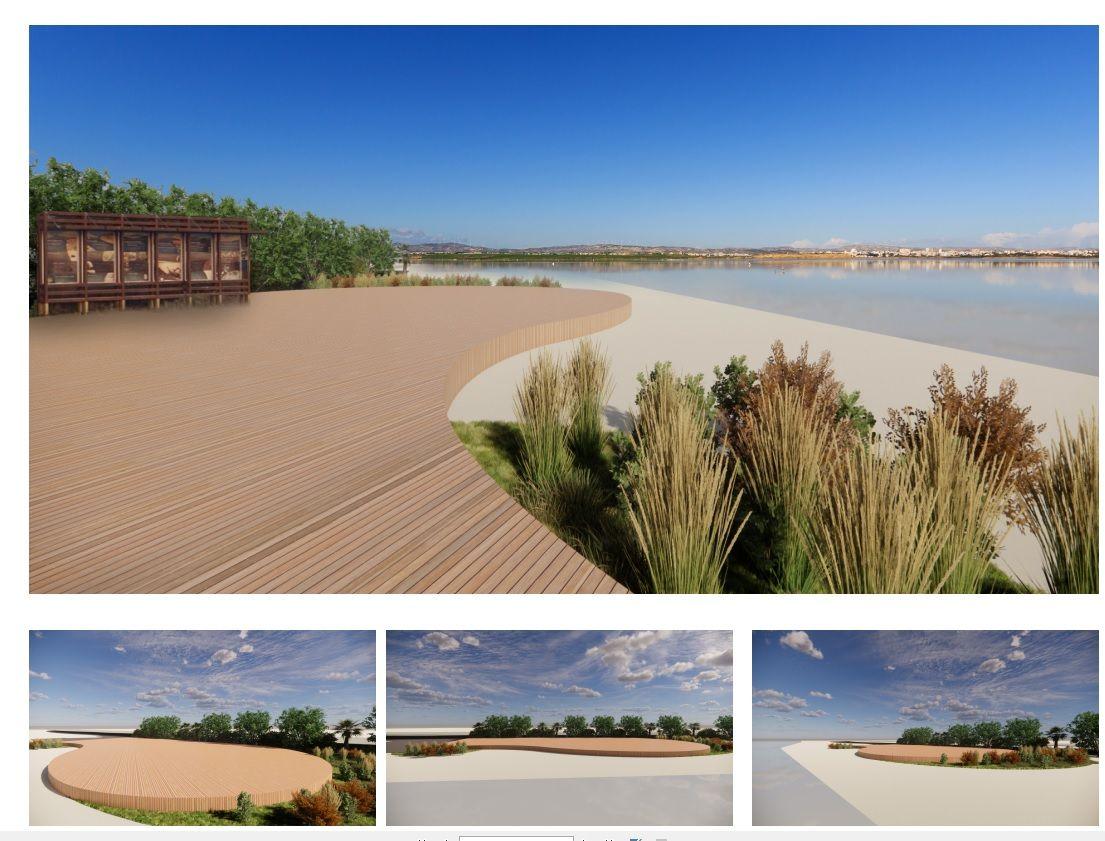The long-awaited project to establish the Aliki Environmental Information Center in the unique Natura 2000 nature reserve, which is home to renowned salt marshes, is set to begin in Larnaca. The city council has officially announced an architectural competition. The new center will play a pivotal role in developing ecotourism in the region and will serve as a platform for educational initiatives with local residents and visitors.
It will be located on the site of the former Agios Charalambos leprosarium in the St. Nicholas parish. The complex has been abandoned since its closure in 2014; however, there are now plans to transform it into a modern space for science, education, and recreation.
The scope of the project and architectural solutions
The total area of the site allocated for the project is more than 41,000 m², and the facility itself will span approximately 695 m². The building will house a reception hall, exhibition spaces, lecture halls, presentation halls, and auxiliary rooms. The outdoor area will feature a landscaped parking lot, a botanical garden with local plant species, shaded areas, walking paths, and observation decks.
Particular attention will be given to creating conditions conducive to birdwatching. A specialized ornithological observation point will be constructed, and environmentally-friendly lighting and informational stands will be installed.

The center will be significant for ecology and tourism
The Larnaca Municipality has emphasized that the center will serve as an educational and cultural facility. It will preserve the unique salt marsh ecosystem and increase its appeal as a tourist destination. All construction work will be carried out in accordance with strict European Union environmental standards.
Funding for the project will come from the THALEIA 2021–2027 program and the EU Cohesion Fund. The total cost of the project is estimated at €2.6 million (excluding VAT). Applications for the competition will be accepted until December 15, 2025, and construction is scheduled to begin in 2026.
From the past to the future
The history of the site lends the project special significance. The leprosarium operated from 1807 until the beginning of the 21st century and was neglected for many years after its closure. There have been more than one attempt to revitalize the area, including the idea of opening a university campus here, but none have been successful. Today, the site has been given a second chance. It will become a place where the past, nature, and modern environmental technologies are combined.
Experts say that launching the Aliki Environmental Information Center could be an important step in developing sustainable tourism in Cyprus. It could attract thousands of visitors each year and encourage a new attitude toward nature conservation.
